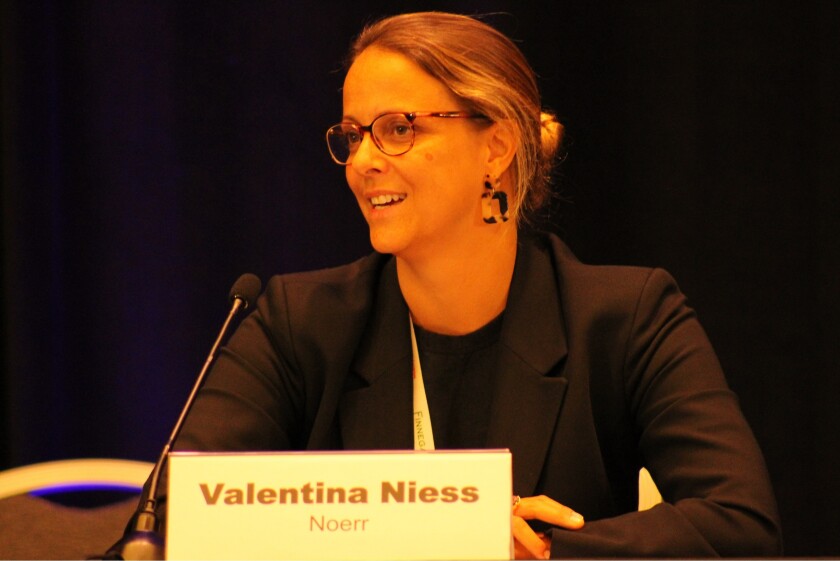There’s a lot of opportunity and plenty of intellectual property-related uncertainty in the metaverse, said speakers at AIPPI’s World Congress yesterday, September 12, in San Francisco.
Panellists from Meta and three other firms said metaverse stakeholders would need to navigate trademark, subject matter eligibility and other problems in a session called The Metaverse: Real World IP Issues.
The use of avatars could cause some trademark complications, said Janna Smith, associate general counsel at Meta in California.
She pointed out that metaverse users could purchase virtual apparel for their avatars and would likely want to retain the rights to wear those items everywhere in the virtual world.
But brand owners might want to limit the use of certain goods, said Smith. She used Nike as an example and questioned whether the shoe company would be allowed to prevent users from wearing its virtual shoes in the Skechers metaverse shop.
“They would never be allowed to restrict this in the real world. But technically, it’s possible in the virtual space,” she said.
She also questioned whether a brand such as Nike could prevent people from wearing its shoes in a game that the company didn’t want to be associated with.
“These are important questions that we’re going to have to answer about the metaverse, and it won’t be easy. It will require an understanding of self-expression versus the rights of brands and what it means to own something in a virtual space,” she said.
The right to publicity could also be a tricky subject, said panellists.
Users could create avatars that resembled real people, including famous individuals, noted Smith. Stakeholders would have to grapple with the question of whether avatars that resembled celebrities infringed upon rights to publicity.
Smith added that rights to publicity laws varied by US state, and some legislation might not have extended to virtual representations or avatars.
Case and law
Certain laws and developments could provide some guidance on the metaverse, however.
Valentina Niess, counsel at Noerr in Germany, pointed out that the EUIPO released guidance in June that said virtual goods should be classified as software.
A recent USPTO decision also shed light on the matter.
Niess noted that the USPTO rejected trademark applications for ‘Prada’ and ‘Gucci’ for the metaverse from filers who weren’t affiliated with the fashion brands.
She said it could be argued that US brands with registrations in other classes didn't need to file applications for the metaverse on the basis that their existing marks would be sufficient to block knockoffs.
Stakeholders should also pay attention to the EU’s Digital Services Act, said Niess.
The law regulates platforms and subjects them to new obligations. Metaverse platforms could be affected by this act, she said.
Patent protection
Companies will have to work out how to protect metaverse innovations.
Marc Richards, partner at Crowell & Moring in Chicago, said there were a lot of start-ups and smaller companies looking to innovate in the metaverse. IP protection would help them compete with larger players.
But he noted that many metaverse applications might be considered ineligible for patent protection under Section 101 in Title 35 of the US Code.
An audience member later asked whether design rights would be a good way to protect aesthetics in the metaverse.
Richards noted that a lot of jurisdictions allowed design rights on computer displays, but that broadly speaking these rights might not be the best form of protection.
The look and feel of websites already changes frequently, he pointed out, and metaverse aesthetics probably would too.
It might not be worth the cost of protecting something that didn't last very long, he added.
Brian Vogelsang, AR product leader at Qualcomm in California, also spoke on the panel.
AIPPI is taking place this week at the Marriott Marquis in San Francisco.











